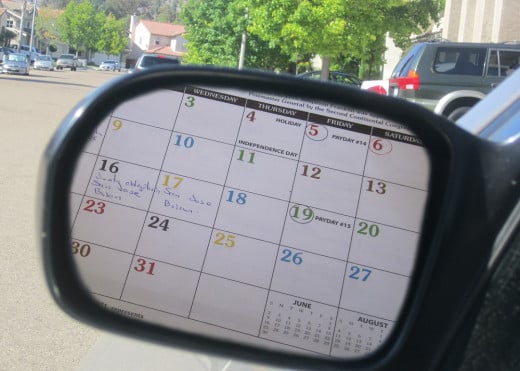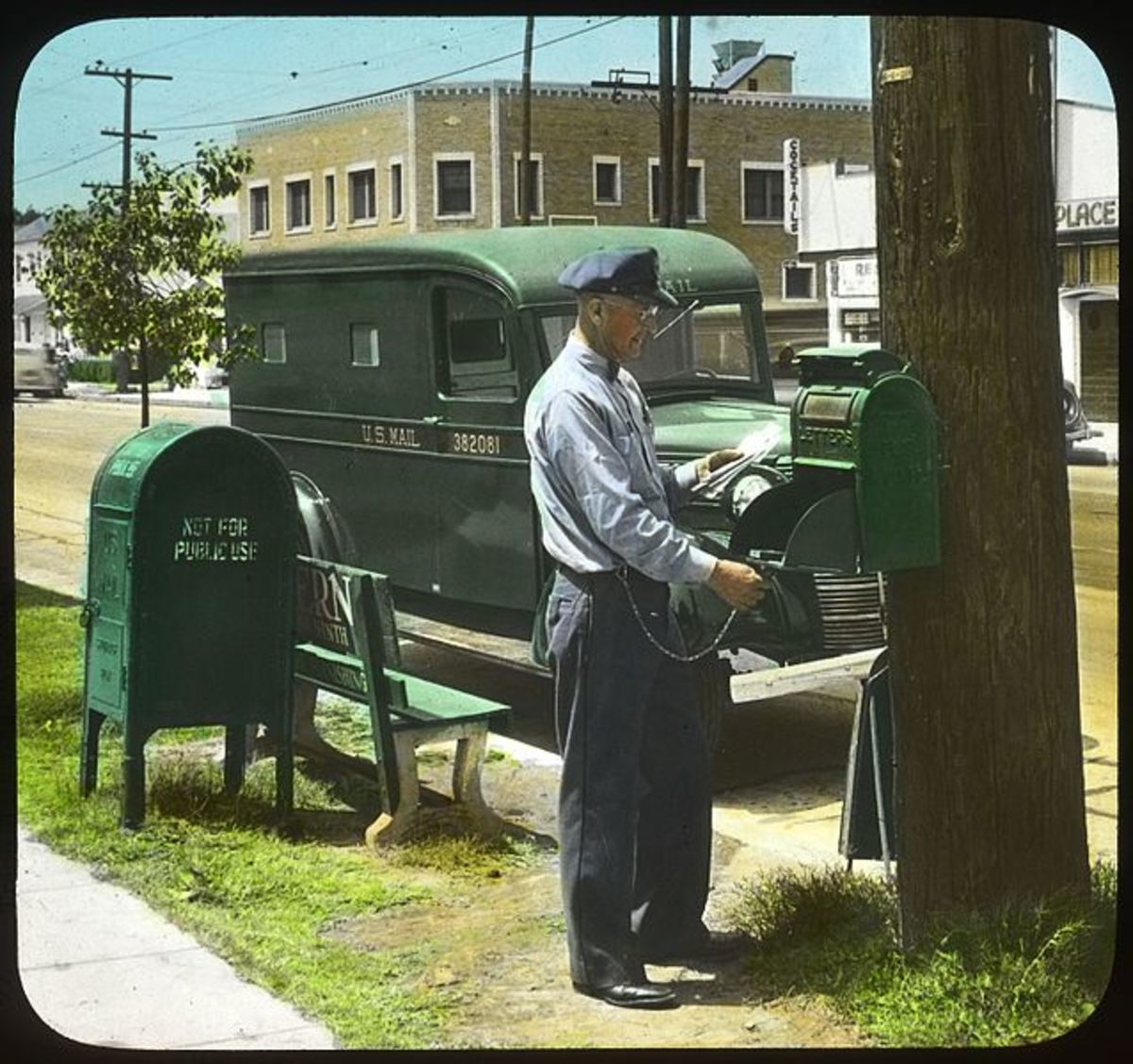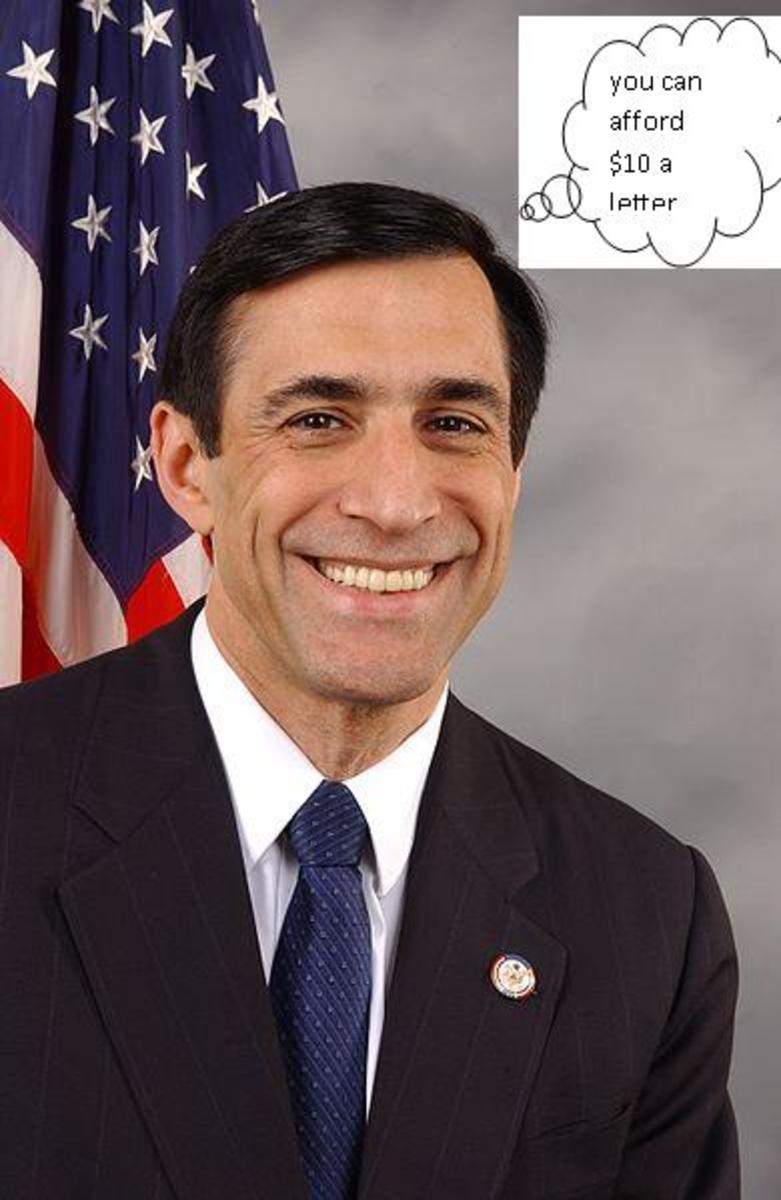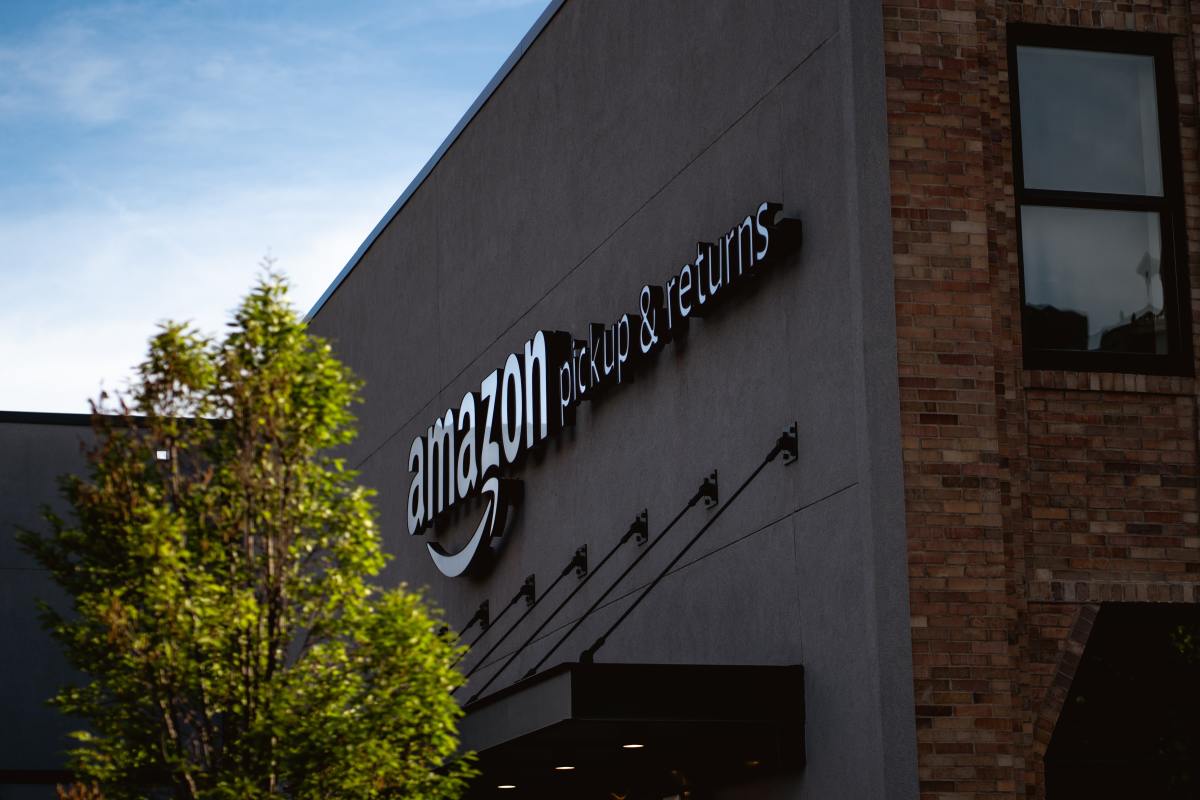Saturday Delivery - Why the Post Office Needs it and America has a Right to it

Introduction
Strange as it seems, the United States Postal Service originally delivered mail seven days a week instead of the six that are now standard procedure. The switch to six was not enacted because of any budgetary or economic crisis in the service; it was changed because people were spending more time on Sundays hanging around the Post Office instead of going to church. Apparently, the Post Office was quite the happening place back then. Today when a man wants to socialize (meaning - drink beer) with his buddies he grabs his bowling ball and tells his wife he's going to the lanes. It's a bit of reach, but he can argue that bowling is a form of exercise in that it involves the use of at least one major muscle group, and she has been getting on you to knock that gut down a bit. But back during the halcyon era of seven day delivery the Post Office was the local hot spot, and the excuse you gave to the wife when church time rolled around was that you had to go into town and pick up the mail. Who could say no to that? The fact that you conveniently waited until Sunday to ride into town for the mail you could attribute to your busy schedule. Life was tough in those days.
But the world has changed since then. Sunday mail service is long gone, and here we are arguing about the continuation of Saturday mail delivery. We aren't debating the subject at the local neighborhood post office either, like we used to. Most of those have been closed. Instead, we're hashing out the issue on the Internet, and although some fabulous successes have been scored for fans of Saturday mail, it doesn't seem that the controversy has been completely laid to rest. Just today a customer asked me "How many more Saturdays?" He asked the question with a sad, nostalgic tone in his voice. Although I tried to reassure him, I felt like the Father in the horror movie trying to comfort the frightened child by telling him that "No, there is no boogeyman in the closet," even though I've been hearing some weird bumps in the night coming from there lately myself.
The Postal Service is tackling the problem of Saturday delivery in the same fashion they are going about everything else in this current cost cutting frenzy. To the USPS, Saturday delivery is simply another tantalizing line item on a spreadsheet. It's a very hefty number, and eliminating it would seem to cut off an enormous area of unwanted expenses. Under the current administration, the USPS seems to approach all problems from the cost side; not a lot of visible effort is being spent on the revenue generation end; by coming up with exciting new products and services (Where are you Marvin Runyan?) or implementing new technology that could improve competitiveness. So while eliminating Saturday delivery would certainly cut costs, I contend that it would also cut off the Postal Service's chief competitive advantage. It would also threaten the post office's ability to adhere to its mandate to provide universal service.

Universal Service Obligation - Why America has the right to 6 day delivery
Article I, Section 8 of the United States Constitution gave Congress the power "To establish Post Offices and Post Roads." I am not entirely a strict constructionist where the Constitution is concerned, but it seems clear that the power over Post Office(s), plural, lies in the hands of Congress. Does one have to be a legal scholar to infer from this that the elimination of Post Offices is also constitutionally in the hands of Congress, and not under control of a single individual, such as the Postmaster General? The Constitution gave Congress control because mail delivery was obviously perceived as a vital right back in 1788, when the Constitution was ratified, and we have not yet reached the point at which mail is completely obsolete, or else why I am I so damn tired when I get home at night? The point I am trying to make is that the framers of the Constitution believed that communication was such a fundamental right to every American citizen that it had to become part of the legal framework of the country. Therefore, the right to mail delivery is etched in stone, right there in Article I, Section 8, and cannot be modified by any single entity other than the elected Congressional body. In an age where so much Constitutional hair splitting goes on every day, it seems peculiar that the simple, clear words of Article I section 8 are so often ignored or misinterpreted.
Sections 101 and 403 of Title 39 of the United States Code expound upon the Constitutionally mandated role of the government by setting down in law what has come to be known as the Universal Service Obligation. The Universal Service Obligation sets "specific minimal specific levels of attainment" (George Mason School of Public Policy). Although the Postal Service has been given broad discretion in applying the standards of the Universal Service Obligation set down in Title 39, every Postal Service Appropriations Act since 1981 has made it clear that 6 day delivery and rural delivery shall continue at not less than the 1983 level. In summation, Congress has been given the authority to establish mail delivery and Congress continues to reaffirm the importance of minimal standards of mail delivery to the people of the United States that it represents. Clearly, 6 day delivery is among these standards. Nonetheless, the slash and burn cost cutting tactics of the Postmaster General continually attempt to defy the authority of Congress and, by extension, the people of the United States.
Fortunately for you, I don't think it is my duty here is to argue mundane legal details. I think my job is simply to remind people of the obvious and let them investigate in greater detail should they choose. Toward this end, I am posting a link to a very lucidly written, though lengthy study by George Mason University. It explains the particulars of the Postal Service's Universal Service Obligation in minute detail.
Geroge Mason University Study on Universal Postal Service

Why the Post Office Needs Saturday Delivery
Both sides of the Saturday delivery debate are equipped with redundant, monotonous catch phrases that they repeat to the point of tedium; as if by hammering them against a listener's skull enough times they will eventually be pounded in. One of the mantras that is used principally by the defenders of Saturday delivery is the insistence that the Postal Service is just that; a service, and not a business at all.
I can't exactly toe the party line on this idea. I think our legal institutions have pretty solidly established by now that although the Postal Service still retains a special status as a service of the United States government that has a constitutional obligation to answer to Congress and to the American People, it is also a business, and as a business it is expected to compete with other business entities in the market for delivery services that it shares with them. But in arguing for the continuation of Saturday Delivery I do not recognize the necessity of having to label the Postal Service as a service only. If this might sound heretical to those of you who stumbled upon this page thinking that your mantras will be reinforced, then I apologize. But the truth is that one of the strongest arguments for Saturday delivery lies in first recognizing that the Postal Service is also a business, and then recognizing that Saturday delivery is one of the primary competitive business advantages that the Postal Service can have in the parcel delivery market.
Once again I think I need to belabor the obvious here. Sometimes people are so busy examining the miniscule details beneath the microscope that they forget the big picture. The wide, sweeping, all-encompassing picture that I am looking at shows me that the Postal Service's primary competitors in the parcel delivery industry; namely UPS and Fed-Ex, do not deliver on Saturday. This is a vital advantage, and trying to so blithely cast it aside reminds me of a story I heard about a sprinter who amputated one of his own legs because his coach told him to lose 20 pounds. This is exactly what the Post Office seems to be doing here; Instead of exploiting such leverage in its marketing campaigns and in its customer-connect strategies, it is on the verge of willfully slicing it off.
I am a chronic procrastinator. Even before I worked for the Postal Service I would always mail a late package with the USPS in the hope that the extra delivery day would allow it to arrive in time for Mother's Day, some loved one's birthday, Christmas, or whatever other cheery holiday I was on the verge of darkening with my thoughtless behavior. I don't know if there is some high and mighty think tank somewhere that has taken time to quantify the mailing behavior of people like me, but they should. I would not be surprised to learn that there is a significant postal revenue slice that comes from individuals and businesses that choose to take advantage of the extra delivery day on Saturday. The Postal Service should play this advantage for everything that it is worth. Getting rid of it is competitive suicide, and I am sure that UPS, Fed-Ex, DHL and all the other delivery wolves are drooling hungrily in the shadows, waiting to lunge in and gobble up whatever will be left of the Postal Service's moribund package delivery business when Saturday is gone.

Six Day Delivery - A Referendum
Do you support the continuation of Saturday mail delivery?
Slash and Burn Management - A Eulogy?
In its unwavering push to kill Saturday delivery once and for all, the United States Postal Service is once again demonstrating its uninspired commitment to the slash and burn style of management. The doctrine underlying slash and burn management is that the forest is cheaper to manage if you burn off huge chunks of it, even if those chunks are productive and the trees within them bear good fruit and provide valuable timber.
The good thing about the slash and burn management style is that it does not require any imagination to carry it out. Brain cells seem to be at a premium these days in the Post Office, and with slash and burn not a lot of them need to be expended going through the painful process of thinking up innovative new products and services. On the other hand, the Saturday delivery number can't be missed in its enormous breadth, and it stands out like a huge, ugly tumor that begs a scalpel to lop it off. The fact that it might not be a tumor at all but perhaps a vital organ escapes the would be postal surgeons, and it remains to be seen whether these scalpel-happy slashers will get their way in lopping off a service that America has a right to and the Post Office needs to compete and survive.
Know Your Enemy - Darrell Issa
- Darrell Issa: A Study in Congressional Character
Postal employees are not fond of Congressman Darrell Issa, but do they have legitimate grievances? Does personal character count with Politicians, or is it none of the electorate's business?
ALERT! Postmaster on the prowl again.
- It's back! USPS renews push for 5-day mail service - NBC News.com
The day after publishing this hub I came across this news article on MSN. The crusade to end Saturday delivery is not dead. Please read.








